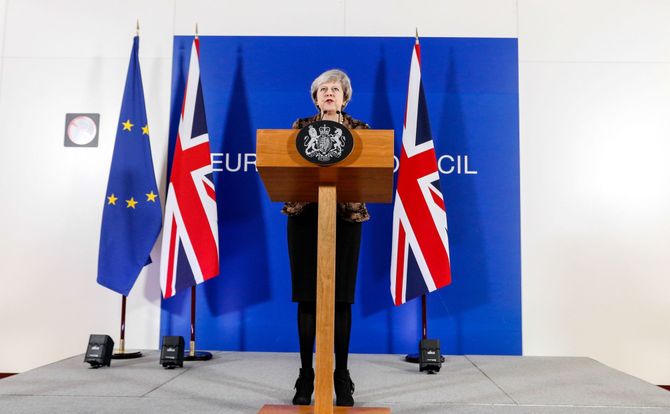Brexit: An unnecessary problem
British Prime Minister May finds herself in a tough spot on Brexit: Brussels is unwilling to make more concessions, but the British Parliament looks unlikely to accept the current agreement. A hard Brexit will cause a lot of disruption, but it could also offer an opportunity for a new start in politics on both sides of the English Channel.

In a nutshell
- The disruption caused by a hard Brexit could jolt both sides into a more pragmatic stance
It appears that the Brexit agreement British Prime Minister Theresa May reached with the European Union will not find the majority it needs to pass in Westminster.
Due to its convoluted mechanisms, the EU believes it has no more room to make any further compromises. However, Prime Minister May needs more concessions from Brussels to get the deal through Parliament. She has therefore delayed the vote, but it will have to be carried out by January 21.
Nervousness on both sides of the channel is increasing. Without an agreement, there will be no transition period after March 29, 2019. A “hard Brexit” would take effect immediately.
Meanwhile, in Germany, the heads of business associations are very worried about the country’s exports to the United Kingdom, whose value exceeds 100 billion euros per year and which support thousands of jobs. German investments in the UK are also under threat. Both presidents of the main German business groups, the Association of German Chambers of Industry and Commerce (Deutscher Industrie- und Handelskammertag) and the Federation of German Industries (Bundesverband der Deutschen Industrie, BDI) have made near-panicked pleas for the sides to find a solution. The BDI’s president, Dieter Kempf, has said that “the ball is in London’s court.” That view is shared by many other German business leaders, but getting the UK to agree to the current deal will prove difficult.
Everybody knows what is at stake. What is lacking is pragmatism.
The risk of losing exports to the UK is not just a problem for Germany – it applies to every other country in the EU. Some 60,000 trucks carry goods across the English Channel daily. Implementing new customs procedures, which have not yet been properly prepared, will delay shipments and jeopardize the just-in-time deliveries that the manufacturing industries on both sides require. There will be huge backups in Calais, Ostend and Dover.
A certain fatalism has taken hold among the British. Former Prime Minister David Cameron’s shortsighted promise to hold a referendum is backfiring. Some decision makers in British politics appear to ignore the fact that the UK is no longer the world power it once was, and that Brussels has the stronger hand in the negotiations.
Everybody knows what is at stake. What is lacking is pragmatism. Prime Minister May has a difficult job. She has fought bravely and tried to make the best of the impossible situation she inherited. Unfortunately, she is caught between a rock and a hard place. A hard Brexit will cause a lot of damage. But it can also be an opportunity for a new start. Maybe the disruption caused by the crisis it would create is needed to bring Europe’s politics and administrations back to pragmatic solutions – both on the British Isles and in mainland Europe.
